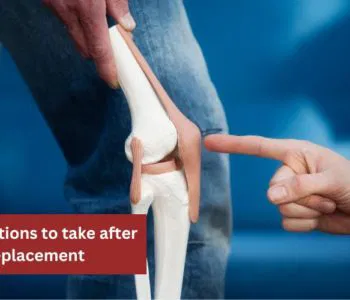How does your sleeping position affect your orthopedic health?
 Orthopaedic
Orthopaedic
How does your sleeping position affect your orthopedic health?
Your sitting or standing posture affects your spine and hence bone health. This is something everyone knows and agrees with. But do you know that even your sleeping position affects your bone health?
Yes. That’s right! Many people complain of aching and stiffness upon waking up. Why? One of the biggest causes is their sleeping posture. Wrong sleep positions can heighten the chances of getting osteoporosis, an ailment affecting the skeleton making bones weak and susceptible to fractures.
You are not alone if you fall into this category. It is an issue faced by millions all over the world. So what should you do in order to overcome it suggested by a bone specialist in Ludhiana and how will you adjust your sleep patterns so that your bones remain healthy? Here it comes!
What is the impact of sleeping posture on bone health?
It is a common human behavior to shift positions during sleep, however, certain positions may put a strain on the bones. For instance, sleeping on the side or stomach with legs bent can cause stress on the hips and vertebrae, leading to potential bone damage. Likewise, adopting a curled-up sleeping position may compress the spine, resulting in back pain and other related issues.
In addition to sleeping posture, there are several factors which are as follows that impact bone health and contribute to morning pain and stiffness upon waking.
Factors affecting your orthopedic health
Selection of pillow
- The use of pillows that are excessively high or low, or too soft or hard, may cause misalignment of the head with the spine’s neutral position.
- Many people opt for memory foam pillows as they adapt to the contours of the head and neck, offering superior support.
Stable position throughout the day
- Failure to stretch or maintain a stationary position of the shoulders during the day may result in carrying stress into sleep.
- Consequently, engaging in stretching exercises and incorporating shoulder movements can effectively diminish stress on the shoulders, thereby alleviating morning discomfort.
Different sleep positions and their effect on your health
Fetal position
- More than 4 out of ten people, especially women who are twice as likely as men to sleep curled upon their side, love it.
- According to the best orthopedic surgeon in Ludhiana, it is a healthy way of napping because it enables your spine to rest in its natural position.
- The fetal position might also help ward off conditions like Alzheimer’s or Parkinson’s: Recent animal research indicates that the brain clears away more waste associated with these neurological disorders when you sleep on your side rather than on your back or stomach.
- This position is also good for pregnant women. You should stick to lying on your left side while expecting. It improves circulation to your growing baby and prevents your uterus from pressing against your liver.
Log position
- Are you someone who sleeps on their side with both arms down, close to your body? You are not alone in this preference, as 15% of individuals opt for the log position for their rest.
- This is beneficial for your health as well, making it a great choice.
- Lying on your side with your back aligned can help reduce sleep apnea and alleviate neck and back pain, as it promotes proper spine alignment.
- Keep a soft pillow, folded blanket, or towel between your knees to alleviate pressure on your hips.
Starfish position
- In this position, you will be lying on your back with your legs extended apart and your arms raised symmetrically alongside your head.
- It may also increase the likelihood of snoring and exacerbate sleep apnea.
- Ensure to place a pillow under your knees before resting. If your mattress is showing signs of wear or is too soft, consider replacing it with a firmer one. Proper spinal support can assist in preventing back pain.
Freefall position
- You lie on your belly, arms folded under the pillow or at the sides of your head like you are plunging in some downy material.
- It might feel wonderful to snuggle into a bed, but sleeping on the stomach can result in low back and neck pains.
- Again, when compared with other positions, it is much more likely that you will toss and turn as you try to get comfortable on your tummy.
- A firm pillow should be avoided; it causes pain by putting the neck at an awkward angle.
- When turning your head to one side, try placing a softer pillow slightly under your forehead and sleep facing towards the mattress instead.
Soldier position
- When lying flat on your back with arms by your side, snoring can occur, impacting half of all adults at some point and becoming more prevalent as we age.
- It can also interrupt your sleep and result in thickening and issues with the carotid artery, responsible for supplying blood to the brain, face, and neck.
- Additionally, sleeping on your back may result in discomfort in the lower back.
If you are suffering from persistent pain, we recommend scheduling an appointment with a bone specialist in Ludhiana for treatment.









